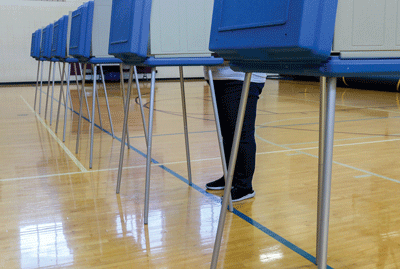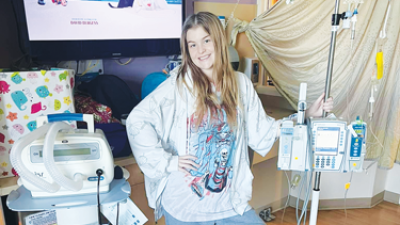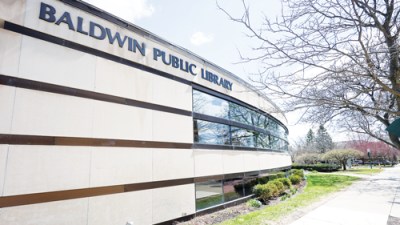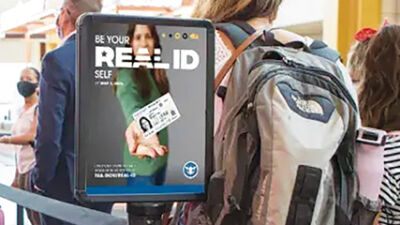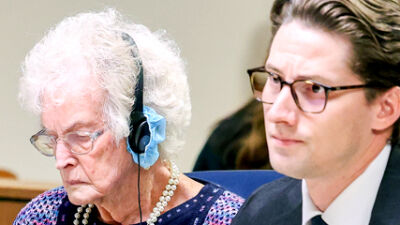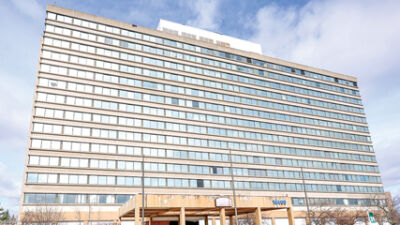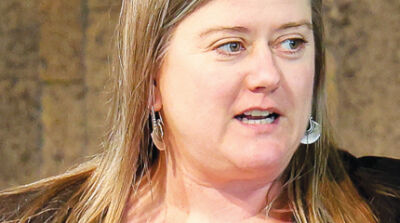OAKLAND COUNTY — On Aug. 10, the Oakland County Board of Commissioners voted to put a measure on the November ballot for all Oakland County residents to decide whether they wish to approve a new millage and opt into an agreement with the Suburban Mobility Authority for Regional Transportation as a county instead of on a community-by-community basis.
The same evening as the commission vote, a town hall meeting took place in Pontiac to answer questions about the measure. Pontiac City Councilman Mikail Goodman was one of the speakers.
“Their vote was to put on the November ballot a measure to redo the millage for SMART service. Right now, every community in Oakland County has an opt-in or opt-out option. Many cities in Oakland County have SMART and many don’t, and they are kind of spread out in a lot of areas. Pontiac and Auburn Hills are the farthest north communities that have it, for instance. This ballot measure is asking residents if they want to opt-in as a county, meaning the whole county would get service and every community would be helping fund SMART services.”
The countywide measure would ask residents to pay into a 0.95 mill collection, which is 95 cents of every $1,000 of taxable value of a home, for 10 years. Expansion would include additional bus routes; the growth of the SMART Flex service, an orderable ride-share style service that is currently in a testing stage in certain communities; and possibly more frequent service.
“The tax burden will remain basically the same for current opt-in communities (including all of Macomb County) — just under 1 mill, which works out to about $8 a month for a house valued at $200,000,” Megan Owens, of Transportation Riders United, said in an email. “SMART bus fares are generally $2 for four hours of unlimited rides, with discounted rates for seniors and people with disabilities of just 50 cents for four hours of rides. That’s also the cost for the on-demand Flex service in the zones that have it. Day, week and monthly rates are also available.”
The details of what service would be like for the communities of Oakland County are still vague. Madonna Van Fossen, the Oakland County ombudsperson for SMART, said this is because it would depend on what the residents of each municipality would want and how they would like service to be implemented in their community.
“The way SMART service works now is that we operate in opt-in communities only, and I believe that is 28 of the 61 communities in Oakland County. With the millage, if it passes, we would operate in all parts of the county. However, it would take time to get community input, put the plan together and to execute that plan.”
The measure was passed with all 11 Democrats on the commission supporting it, in addition to Republican Commissioners Michael Gingell and Karen Joliat. The other seven Republicans in attendance voted no. One Republican commissioner was absent.
Board Chair and District 19 Commissioner Dave Woodward, a Democrat, authored the measure that was approved by the County Commission to place the transit millage on the ballot.
“This is an Oakland County solution to improve transit for everyone across Oakland County,” said Woodward. “This will fund all current transportation services. It will fund paratransit programs and fund senior and disabled transit service. It provides funding to expand those services to ensure service can go to places people cannot reach right now. It also funds capital investment to maximize the drawdown of new federal money from the new bipartisan infrastructure act that is in place. It’s an investment in our overall transit in the county.”
Woodward stressed that this will replace the existing SMART millage and not be added on top of it.
“This proposal replaces the SMART millage,” he said. “Some people think it will be on top of the current millage that expires at the end of this year, but it will replace it if approved in November.”
Tom Kuhn, a Republican representing the 11th District on the Oakland County Board of Commissioners, did not support the measure, stating he believes the process for placing the measure on the ballot was being rushed.
“The transit tax and program is a hugely important issue,” said Kuhn. “Unfortunately, the county’s Democratic leadership only brought it up at the last second. This requires transparency and accountability, and I thought that was missing from this process. … How can you bring up something this big without ensuring residents are properly informed?”
Goodman said that he sees the measure as a way to expand the reach of people in Oakland County and improve quality of life for the whole community.
“The biggest thing is to make sure people know what is happening with the millage, as well as its importance,” he said. “By talking about not only what it is, but what it can do for communities is important. Discussing the changes it could make for Pontiac residents or the difference it could make in the north side of Oakland County in places like Holly, Lake Orion and Clarkston is huge.”
He added that the most common argument against public transportation investment is the cost but that such investments will prove beneficial in communities.
“When conservatives or economic hawks talk about public transit, the cost is always something that comes up — but what I think needs to be part of that discussion is the economic impact it can have,” explained Goodman. “Every dollar spent on public transit will serve as an investment of, I think, $5 to $1, so for every dollar that is put into public transit, the community as a whole is seeing economic growth through economic development, better job availability, reduced costs, reduces in medical bills, less road congestion and so forth.”
Proponents of the measure say that this ballot proposal is something that would not only be good for Oakland County as an institution, but good for its residents as well.
“Senior transit matters, getting workers to jobs matters, getting patients to health care services matters, getting disabled persons to where they need to go matters,” said Woodward. “This measure has bipartisan support on the board and has bipartisan resident support. It builds and expands on the services we already have in place and prepares a plan for the future.”
 Publication select ▼
Publication select ▼